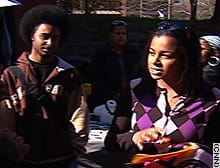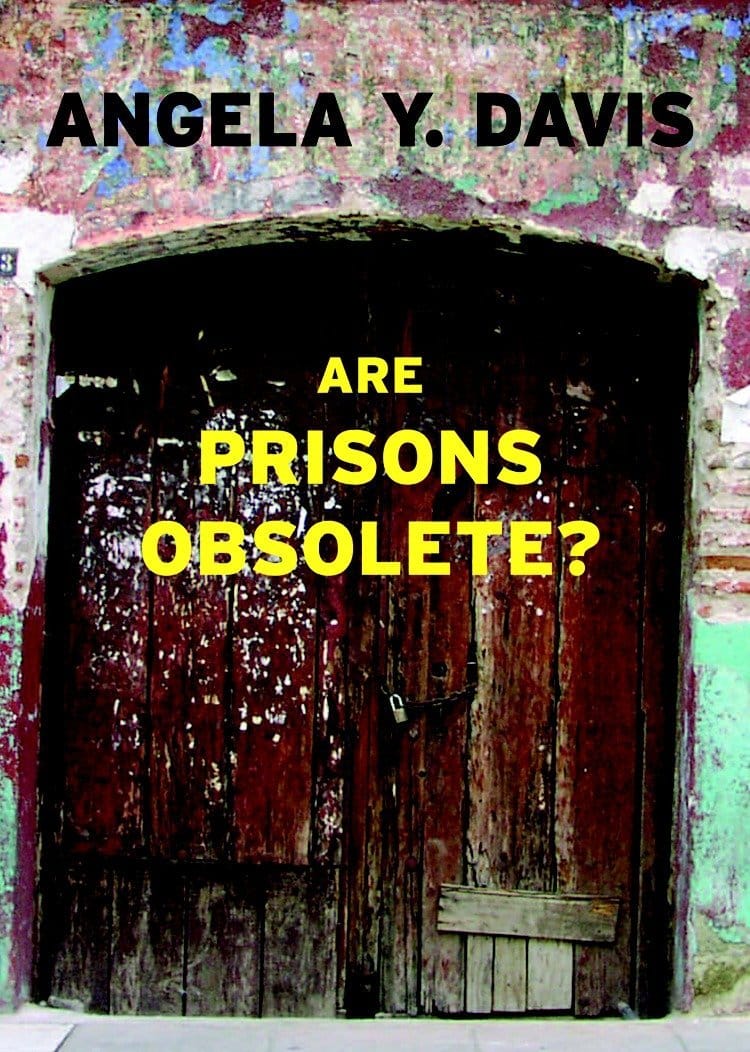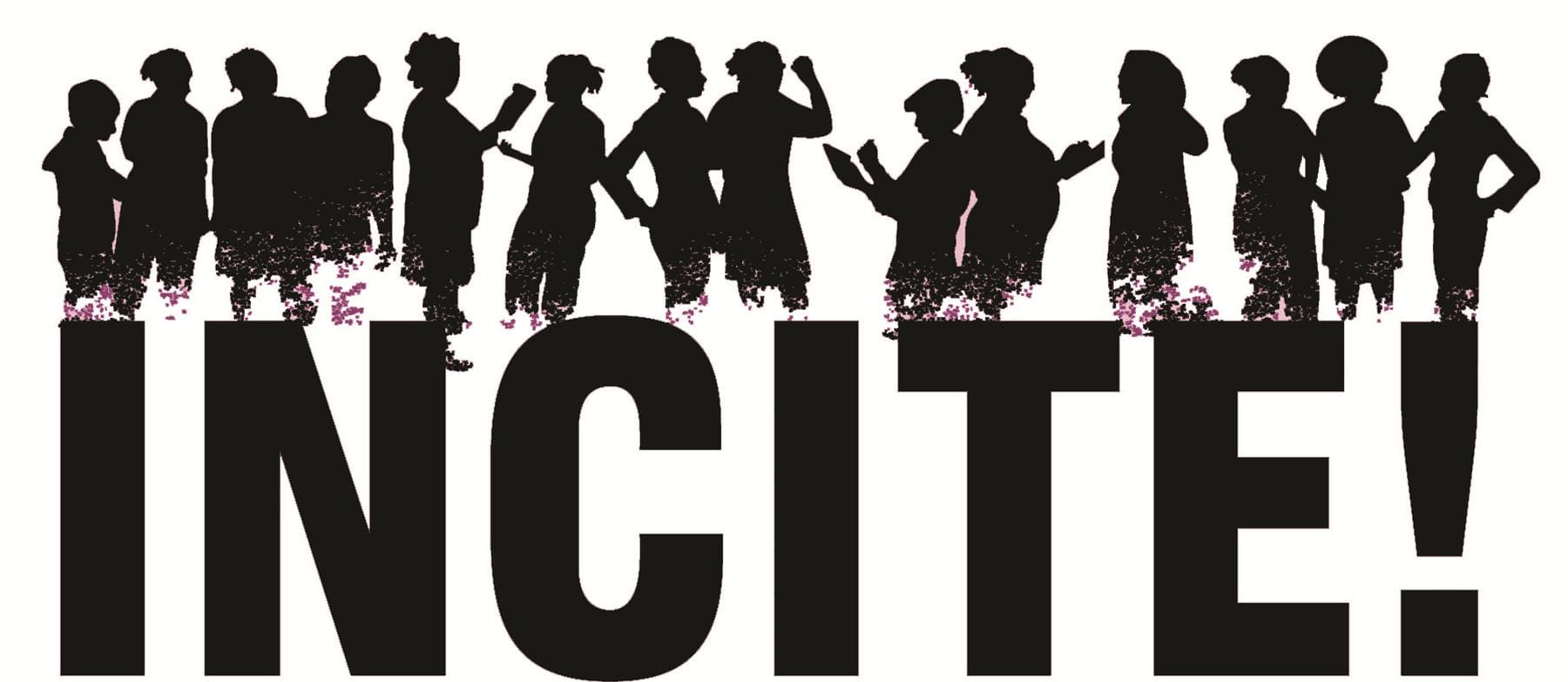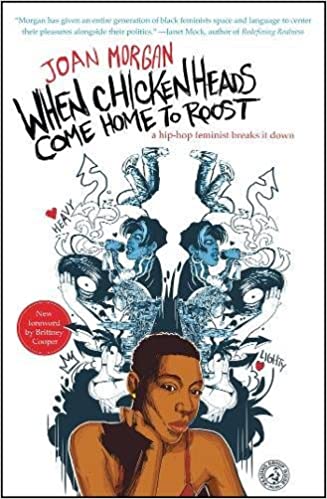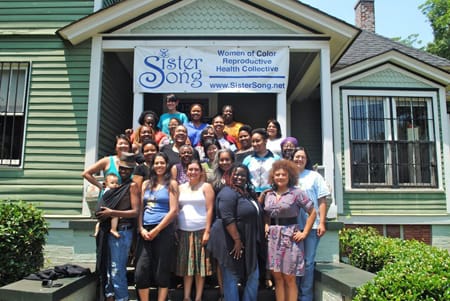This movement was started by Asha Jennings and Moya Bailey to confront how the hip-hop music industry perpetuates misogynoir and the hypersexualization of Black women’s bodies. In April 2004, Jennings and Bailey led protests at Spelman College in response to the misogynistic lyrics in Nelly’s song “Tip Drill.” These protests evolved into Take Back the Music, a national campaign sponsored by Essence magazine, to address the degrading portrayals of Black women in hip hop.
Author: developer
Crunk Feminist Collective
The Crunk Feminist Collective (CFC) provides a space of support and camaraderie for hip-hop generation feminists of color, queer and straight, in the academy and without, by building a rhetorical community in which we can discuss our ideas, express our crunk feminist selves, fellowship with one another, debate and challenge one another, and support each other, as we struggle together to articulate our feminist goals, ideas, visions, and dreams in ways that are both personally and professionally beneficial.
Brittney Cooper
Brittney Cooper is an author, feminist, teacher, activist, and cultural critic. Her areas of research and work include Black women organizations, Black women intellectuals, and hip-hop feminism. She is a co-founder of the Crunk Feminist Collective (CFC). The Crunk Feminist Collective blog was named a top feminist blog by New York magazine in 2011 and a top race blog by TheRoot.com in 2012. Cooper writes for the CFC as “crunktastic.”
Are Prisons Obsolete? by Angela Davis
Angela Davis’ book Are Prisons Obsolete? (2003) has become a cornerstone text in the modern-day abolition movement. In the text, she argues for decarceration and a world that is centered on healing.
INCITE! Women of Color Against Violence
INCITE! is a network of radical feminists of color organizing to end state violence and violence in our homes and communities. Formed in 2000 at The Color of Violence: Violence Against Women of Color conference, INCITE! has created grassroots chapters across the country, launched political projects mobilizing women of color against violence, and hosted numerous conferences that have attracted and inspired thousands of people.
When Chickenheads Come Home to Roost, by Joan Morgan
Joan Morgan’s 1999 book When Chickenheads Come Home to Roost: A Hip-Hop Feminist Breaks It Down “offers a provocative and powerful look into the life of the modern Black woman: a complex world in which feminists often have not-so-clandestine affairs with the most sexist of men, where women who treasure their independence frequently prefer men who pick up the tab, where the deluge of babymothers and babyfathers reminds Black women who long for marriage that traditional nuclear families are a reality for less than 40 percent of the population, and where Black women are forced to make sense of a world where truth is no longer black and white but subtle, intriguing shades of gray.”
Black Feminist Caucus of the Black Radical Congress 1998
In 1998, the Black Radical Congress (BRC) took place in Chicago with the intent to promote dialogue between Black activists and scholars. Within the BRC, the Black Feminist Caucus formed as a space to strategize on how to connect Black feminist theories to the struggles of “working-class and poor Black women.” They organized to ensure that Black women’s concerns were centered as the BRC developed its Black Freedom Agenda for the 21st century.
The Million Women March
On October 25, 1997, approximately 750,000 Black women gathered to march in Philadelphia as part of the Million Woman March, an event centered on unifying Black women and giving them space to voice their concerns. The march was organized by two grassroots activists in Philadelphia: Phile Chionesu and Asia Coney. The Million Woman March, which did not rely on promotion from the leading icons of the civil-rights movement, became one of the largest gatherings of women across the globe.
The Campaign to Defend Tabitha Walrond
Tabitha Walrond gave birth to her son Tyler on June 27, 1997. She tried to enroll her son on her health-insurance plan but faced “bureaucratic red tape and errors.” Despite her efforts, she could not get a Medicaid card for her son, and doctors refused to see him without one. Tabitha struggled to breastfeed due to a surgery she’d had four years prior, as well as the fact that she had undergone a C-section to give birth to Tyler. Doctors did not inform her that these two factors could impact her breastfeeding capabilities. Tyler died from malnutrition on August 27, 1997. Tabitha was convicted of criminally negligent homicide and sentenced to five years of probation. Advocates fought for Tabitha’s freedom and emphasized that Tyler died due to medical racism and institutional failings rather than malice on her behalf.
SisterSong
SisterSong Women of Color Reproductive Justice Collective was formed in 1997 by 16 organizations of women of color from four mini-communities (Native American, African American, Latina, and Asian American) who recognized that we have the right and responsibility to represent ourselves and our communities, and the equally compelling need to advance the perspectives and needs of women of color. SisterSong is a Southern-based national membership organization; [their] purpose is to build an effective network of individuals and organizations to improve institutional policies and systems that impact the reproductive lives of marginalized communities.

